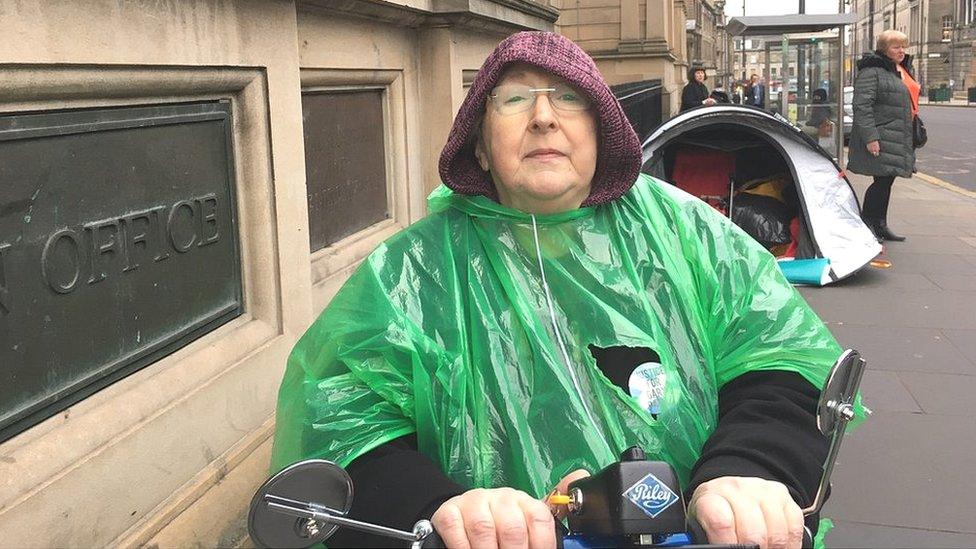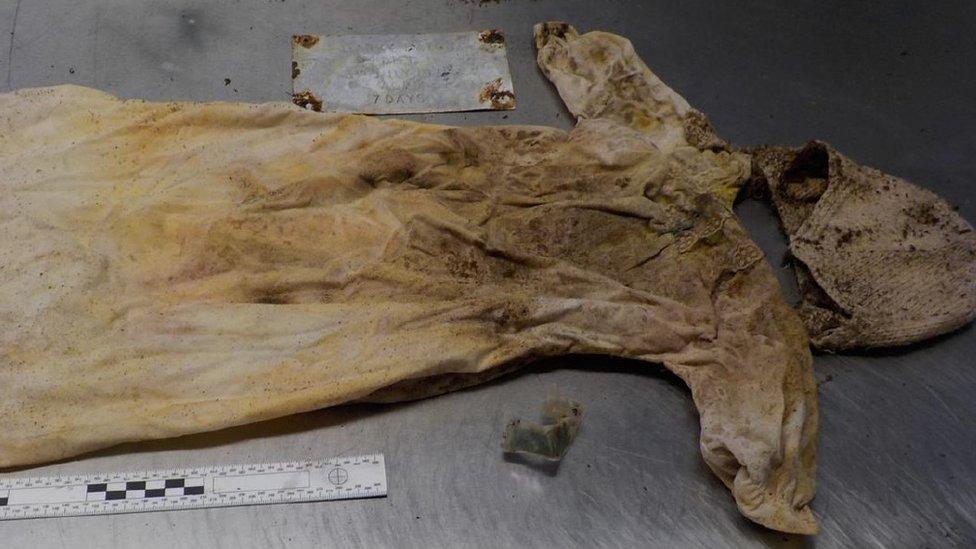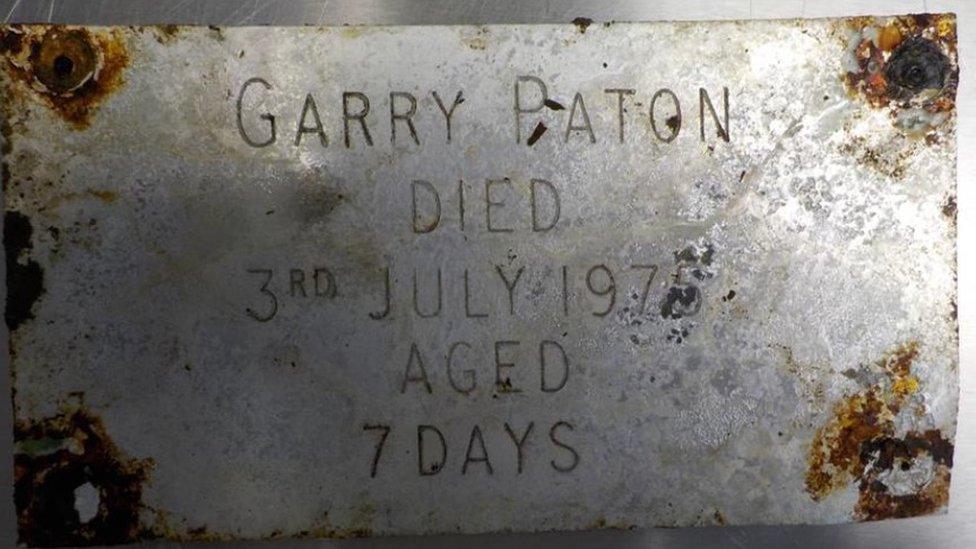Edinburgh mother on hunger strike to have baby's remains returned
- Published

Lydia Reid is on hunger strike outside the Crown Office in Edinburgh
There are details in this story which some readers may find upsetting
A mother who discovered that her son's coffin was buried with no body in it has gone on hunger strike to demand a public inquiry.
Lydia Reid's baby, Gary, was a week old when he died in 1975.
When his coffin was exhumed four years ago, experts concluded it was buried without human remains.
Ms Reid, 73, who is camped outside the Crown Office in Edinburgh, said she had exhausted all legal options to have the remains of her son returned for burial.
The Crown Office said it would not comment during an investigation.
Ms Reid has campaigned for years to find out what happened to her son.
She was a leading figure in the Scottish push to expose how hospitals had unlawfully retained dead children's body parts for research.
The NHS in Scotland was forced to admit the widespread practice after an investigation into organ retention at Alder Hey hospital in Liverpool.
About 6,000 organs and tissues were kept by Scottish hospitals between 1970 and 2000, many from children.
Life support
Ms Reid said "This is a hunger strike to object to a system where there is no legal pathway to stop Police Scotland and Crown Office taking the parts of my child Gary Paton."
She said she has had "nightmares every day" over what became of his body.
"I was told way back that Gary was in a jar, that would not surprise me," she said.
"We do know at one point he was left in a cold sluice to die. That was what they did with brain-damaged babies in those days.
"We also know though he was then put back on to life support. Why? Was he used as an organ donor? That would explain why his body was not available for burial."

A hat and shroud were recovered from the coffin but there was no trace of human remains
After being granted a court order for an exhumation in September 2017, Ms Reid discovered her baby's coffin was buried with no body in it.
The exhumation was conducted by forensic anthropologist Prof Dame Sue Black who concluded the coffin was buried without human remains.
A shawl, a hat, a cross and a name tag were found in the burial plot, as well as the disintegrated coffin - but no skeletal remains and no sign of decomposition.
Prof Black told BBC Scotland at the time: "Ultimately there is only one possible logical explanation and that is that the body was not put in that coffin."
Brain damaged
Ms Reid told BBC Scotland that Gary had been born a Rhesus baby. Rhesus disease is a condition where antibodies in a pregnant woman's blood destroy her baby's blood cells.
She said: "My son Steven was born Rhesus and he was given a blood transfusion and he was fine but instead they decided to do an experimental procedure on Gary and that left him brain damaged."
The disabled mother-of three says she is terrified that if body parts belonging to Gary are still around they could be destroyed.
She said: "I have no other legal option left, so at 73 I'm having to camp for the first time, which is very difficult when I'm disabled.
"I'm thinking about my boy and it is the only chance left of him getting a burial."
She has been given permission by Police Scotland to camp in Chambers Street in Edinburgh during her protest.

Gary's name was spelt incorrectly on a nameplate on top of the coffin
The former market trader, who lost her son Bruce to cancer in 2006, said: "I have no food with me, only water. My son, Steven, will drive past as will the police during the night to check on me so I'm not scared."
A spokesman for the Crown Office and Procurator Fiscal Service said: "We appreciate that it has been a difficult time for Ms Reid.
"COPFS has a responsibility to establish the facts in this matter which should provide Ms Reid with answers.
"While the investigation is ongoing it would not be appropriate to comment further."
- Published1 September 2017
